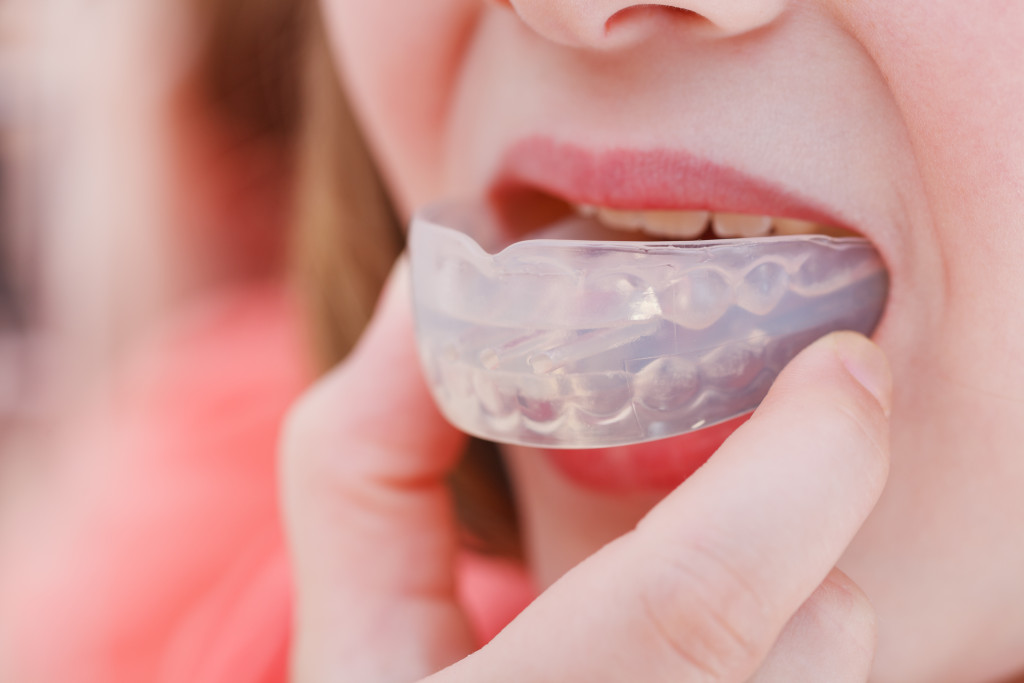Do you grind your teeth at night? Do you hear a clicking or grinding noise when you open your mouth wide? If so, you may have bruxism. According to studies, anywhere from 6% to over 50% of kids grind their teeth at night. It can affect youngsters as soon as their teeth emerge, and some newborns and infants bite down on their teeth.
The incidence of sleep bruxism in young people is thought to be around 15%. It decreases with age, with 8% of middle-aged persons and just 3% of elderly individuals grinding their teeth during sleep.
What is bruxism?
A condition in which people chew, grind, or clench their teeth is known as bruxism. It can occur during the day or night and often happens during periods of stress. Although bruxism is not a severe medical condition, it can lead to several problems, such as headaches, jaw pain, and worn-down teeth.
In severe cases, bruxism can even cause Temporomandibular Joint Disorder (TMJ), which affects the joints connecting the lower jaw to the skull. Treatment for bruxism typically involves lifestyle changes and stress management techniques. In some cases, an orthodontic splint retainer may also be recommended to protect the teeth from wear and tear.
Causes
The significant causes of bruxism are stress and anxiety. However, there are other possible causes, such as:
Abnormal bite or misaligned teeth
One potential cause of bruxism is when the teeth do not come together correctly. It can put undue pressure on the jaw and facial muscles, leading to pain and inflammation. In some cases, this can also cause Temporomandibular Joint Disorder (TMJ), further contributing to bruxism. If you think that your bite may be causing your bruxism, it is essential to consult with a dentist or orthodontist. They will be able to assess your bite and recommend treatment options that can help to alleviate the problem.
Caffeine intake
Studies have shown that people who consume large amounts of caffeine are more likely to suffer bruxism than those who do not. Caffeine is a stimulant, and it is thought that the increased level of alertness and energy it provides can lead to teeth grinding. In addition, caffeine can also increase anxiety levels, which may also contribute to bruxism. While the exact cause of bruxism is unknown, it is clear that caffeine plays a role in the condition. If you suffer from bruxism, you must cut back on your caffeine intake or eliminate it altogether.
Smoking tobacco
Smoking tobacco is a known risk factor for numerous dental problems, including gum disease, tooth loss, and staining. However, tobacco use can also lead to another condition called bruxism, which is clenching or grinding teeth. Bruxism can occur during the day or at night, and it can cause a great deal of pain and discomfort. In addition, bruxism can lead to tooth wear and damage, jaw pain, and headaches. If you smoke tobacco and notice that you are grinding your teeth, it is crucial to see a dentist so that the problem can be treated. Untreated bruxism can have severe consequences for your oral health.

Symptoms
The most common symptom of bruxism is teeth grinding or clenching. This can occur during the day or at night and can often be heard by others. Other symptoms of bruxism include:
- Jaw pain
- Headaches
- Earache
- Stiffness in the jaw muscles
- Pain when chewing
- Dental problems, such as broken fillings, tooth wear, or cracked teeth
- Disrupted sleep
If you think that you may be suffering from bruxism, don’t think twice and give your dentist a visit. The earlier you catch the problem, the easier it will be to treat.
Treatment
The best way to treat bruxism is to identify and address the underlying cause. If stress or anxiety triggers, relaxation techniques such as meditation or yoga may help. If bruxism is caused by a misaligned bite, then orthodontic treatment may be necessary to correct the problem. In some cases, an oral appliance such as a night guard may also be recommended to protect the teeth from grinding. Night guards are available over-the-counter or can be custom-made by a dentist.
Getting the proper treatment for bruxism is vital to protect your oral health. If left untreated, bruxism can lead to serious dental problems. So, don’t hesitate to seek treatment if you think you may be suffering from this condition.
The bottom line
Bruxism is a condition characterized by teeth grinding or clenching. It can lead to dental problems, such as jaw pain, tooth wear, and cracked teeth. IN some cases, it may even cause Temporomandibular Joint Disorder (TMJ). If you think you may be suffering from bruxism, it is crucial to see a dentist to properly treat the problem.
